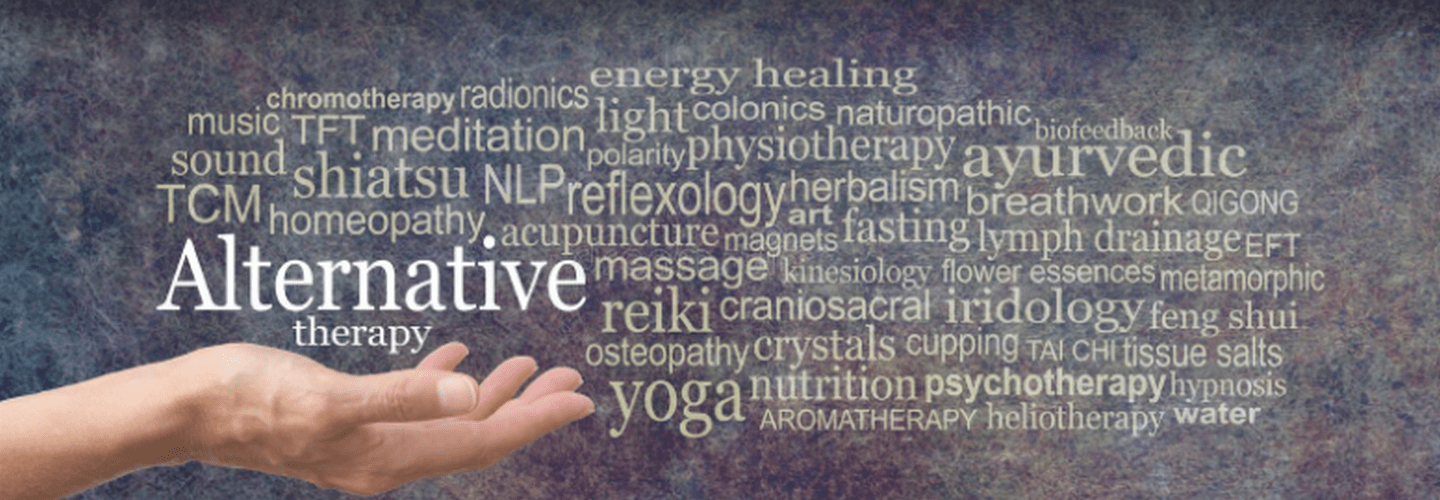
Hypnosis, EFT, and NLP offer effective solutions for overcoming the fear of judgment. By addressing subconscious root causes and reframing negative thought patterns, these techniques enhance self-acceptance and confidence. EFT’s tapping on meridian points with positive affirmations rewires thought patterns for self-compassion. NLP’s techniques create positive associations for self-worth and confidence building. These practices empower individuals to control anxiety symptoms and shift towards a more self-assured mindset. Understanding and utilizing these tools can lead to lasting improvements in mental well-being. Ready to discover powerful strategies for inner resilience and confidence?
Understanding Fear of Judgment
The fear of judgment is a common emotional response that stems from the innate need for social acceptance and validation. Understanding judgment is important in addressing this fear. Judgment, whether real or perceived, can trigger feelings of inadequacy, shame, and anxiety. Coping mechanisms play an essential role in managing this fear effectively.
Individuals often fear being judged due to past negative experiences, societal pressures, or low self-esteem. This fear can lead to avoidance behaviors, social withdrawal, and diminished self-confidence. By understanding the roots of judgment and its impact on mental well-being, individuals can begin to challenge irrational beliefs and develop healthier perspectives.
Coping mechanisms are crucial tools in addressing the fear of judgment. Techniques such as mindfulness, cognitive-behavioral strategies, and relaxation exercises can help individuals manage anxiety and build resilience. Seeking support from trusted individuals, engaging in self-care practices, and reframing negative thoughts are effective ways to cope with the fear of judgment.
Benefits of Hypnosis for Anxiety

Utilizing hypnosis as a therapeutic intervention can offer individuals suffering from anxiety a profound sense of relief and empowerment. Hypnosis works by inducing a state of deep relaxation, allowing individuals to access their subconscious mind and address the root causes of their anxiety. Through relaxation techniques employed during hypnosis sessions, individuals can experience a reduction in stress levels and a sense of calm that extends beyond the session itself.
The mind-body connection plays an important role in the effectiveness of hypnosis for anxiety. By tapping into the subconscious mind, hypnosis can help individuals reframe negative thought patterns, enhance self-awareness, and promote emotional wellbeing. This process allows individuals to develop coping mechanisms and resilience in the face of anxiety triggers.
Furthermore, hypnosis can empower individuals to take control of their anxiety symptoms and build self-confidence. By addressing the underlying issues contributing to anxiety, individuals can experience lasting improvements in their mental health and overall quality of life.
EFT Techniques for Self-Acceptance

Emotional Freedom Techniques (EFT) offer powerful tools for fostering self-acceptance. By utilizing EFT for confidence and Neuro-Linguistic Programming (NLP) for enhancing self-worth, individuals can address deep-seated issues related to self-esteem and acceptance.
These techniques provide practical and effective ways to cultivate a sense of self-acceptance and inner peace.
EFT for Confidence
Implementing EFT techniques can greatly enhance self-acceptance and boost confidence levels. EFT, or Emotional Freedom Techniques, offers a powerful tool for addressing confidence issues through tapping on specific meridian points while focusing on positive affirmations.
By utilizing EFT for confidence boosting, individuals can work through limiting beliefs and negative self-perceptions that hinder their self-acceptance. Through the repetitive process of tapping and affirming positive statements about oneself, individuals can rewire their thought patterns and cultivate a more empowering self-image.
This practice encourages self-compassion and self-assurance, leading to increased confidence in various areas of life. EFT offers a practical and effective method for fostering self-acceptance and nurturing a mindset of self-assurance.
NLP for Self-Worth
Enhancing self-worth through Neuro-Linguistic Programming (NLP) techniques can be a transformative approach to fostering self-acceptance and confidence. NLP offers powerful tools that can help individuals boost their self-esteem and enhance their confidence levels effectively. Here are some key ways NLP can assist in improving self-worth:
- Positive Anchoring: NLP techniques can help create positive associations linked to feelings of self-worth.
- Reframing Limiting Beliefs: By identifying and reframing negative self-perceptions, NLP can contribute to a significant confidence enhancement.
- Visualization and Goal Setting: Utilizing NLP visualization techniques aids in envisioning a future with higher self-esteem, fostering a positive mindset for self-improvement.
NLP Strategies for Confidence Building

Utilizing Neuro-Linguistic Programming (NLP) techniques can be highly effective in fostering a sense of self-assurance and empowerment in individuals seeking to enhance their confidence levels. When focusing on confidence building through NLP, incorporating mindfulness techniques can be particularly beneficial. Mindfulness helps individuals become more aware of their thoughts and emotions, allowing them to better understand and manage their reactions to different situations. By practicing mindfulness, individuals can develop a greater sense of self-awareness and control over their thoughts, ultimately boosting their confidence.
Positive affirmations are another powerful NLP strategy for building confidence. Encouraging individuals to repeat positive statements about themselves can help rewire their subconscious mind to believe in their capabilities and worth. Through consistent use of positive affirmations, individuals can gradually shift their mindset towards one that is more self-assured and optimistic. NLP techniques, such as anchoring positive emotions to specific triggers, can further reinforce confidence-building efforts by associating empowering feelings with certain actions or thoughts.
Overcoming Negative Self-Talk

Negative self-talk can be a significant barrier to personal growth and well-being. By challenging the inner critic, individuals can start to shift their perspective and build self-confidence.
Practicing self-compassion is key in overcoming negative self-talk and fostering a more positive self-image.
Challenging Inner Critic
Challenging the inner critic involves recognizing and reframing self-critical thoughts to cultivate self-compassion and positive self-perception. It’s an essential step in combating self-doubt and building inner strength to overcome self-criticism.
Here are some practical ways to challenge your inner critic:
- Practice Self-Compassion: Treat yourself with the same kindness you would offer to a friend facing similar challenges.
- Identify Negative Patterns: Recognize recurring negative thoughts and work on changing them into more positive and realistic ones.
- Celebrate Small Wins: Acknowledge and celebrate your achievements, no matter how small, to boost self-confidence and counteract self-criticism.
Building Self-Confidence
To enhance one’s self-confidence and combat detrimental self-dialogue, it is imperative to cultivate a mindset of self-affirmation and resilience. Self-empowerment techniques play an essential role in this process.
Engaging in positive mindset strategies can help reframe negative self-talk and build a more confident self-image. Setting realistic goals and celebrating achievements, no matter how small, can boost self-esteem. Additionally, practicing self-care and surrounding oneself with supportive and positive influences can contribute to a more positive self-perception.
Regularly challenging negative thoughts and replacing them with affirming statements can rewire the brain towards a more optimistic outlook. By incorporating these self-empowerment techniques and positive mindset strategies, individuals can gradually diminish negative self-talk and enhance their self-confidence.
Practicing Self-Compassion
In cultivating self-compassion as a means of overcoming detrimental self-talk, individuals can start on a journey towards nurturing a more compassionate self-view. Practicing self-compassion is essential for building resilience and fostering a positive self-image.
Here are some practical ways to incorporate self-compassion into your daily routine:
- Practice mindfulness: Be present in the moment and observe your thoughts without judgment.
- Challenge negative self-talk: Replace self-criticism with kind and understanding words towards yourself.
- Celebrate small victories: Acknowledge your accomplishments, no matter how small, and be proud of yourself.
Healing Past Traumas With Hypnotherapy

Healing past traumas through hypnotherapy offers a profound opportunity for individuals to explore and address deep-rooted emotional wounds in a safe and transformative way. Hypnotherapy techniques can assist in accessing the subconscious mind, where these traumas are often stored, allowing individuals to process and heal these experiences effectively. By guiding individuals into a relaxed state of heightened focus, hypnotherapy helps them connect with their inner selves and reframe past traumatic events from a new perspective. Techniques such as regression therapy can aid in revisiting past experiences, understanding them, and integrating healing insights into the present.
Moreover, hypnotherapy can facilitate the release of suppressed emotions and beliefs related to past traumas, enabling individuals to experience emotional catharsis and relief. Through this process, individuals can gradually reduce the emotional charge associated with traumatic memories and cultivate a sense of empowerment and resilience. Overall, the use of hypnotherapy in healing traumas provides a valuable tool for individuals seeking profound emotional healing and personal growth.
Integrating Mindfulness in Daily Life

By incorporating mindfulness practices into daily routines, individuals can cultivate a heightened awareness of the present moment and enhance their overall well-being. Mindful living involves actively focusing on the present, acknowledging thoughts and feelings without judgment, and fostering self-awareness.
Here are three practical ways to integrate mindfulness into daily life:
- Morning Routine: Start the day with a mindfulness practice such as meditation or deep breathing exercises to set a positive tone for the day ahead.
- Mindful Eating: Pay attention to the sensory experience of eating, savoring each bite without distractions to enhance enjoyment and promote healthy digestion.
- Self-Reflection: Take time each evening to reflect on the day, acknowledging both challenges and successes with self-compassion and a non-judgmental attitude.
Frequently Asked Questions
Can Hypnosis, Eft, and NLP Help With Social Anxiety in Addition to Fear of Judgment?
Addressing social anxiety and fear of judgment can enhance social connections and confidence. Through self-acceptance and empowerment, individuals can navigate social situations with ease. Techniques like hypnosis, EFT, and NLP offer tools to manage anxieties and boost self-assurance.
Are There Any Potential Side Effects or Risks Associated With Using These Techniques for Resolving Fear of Being Judged?
When considering techniques to address the fear of being judged, it’s important to evaluate potential risks and safety measures. Understanding the effectiveness and precautions associated with these methods can help individuals make informed decisions about their mental health journey.
How Long Does It Typically Take to See Results When Using Hypnosis, Eft, and NLP for Overcoming Fear of Judgment?
When aiming to overcome the fear of judgment, progress milestones serve as markers of success. Success stories often emerge at various stages, illustrating the effectiveness of techniques. Long-term effects show sustainability, with results typically varying based on individual commitment and circumstances.
Can These Techniques Be Used in Combination With Traditional Therapy or Medication for Anxiety?
Alternative therapies like hypnosis, EFT, and NLP can complement traditional therapy and pharmaceuticals in anxiety management. Integrative approaches offer diverse tools for individuals seeking all-encompassing care. Collaborating with healthcare providers can enhance treatment outcomes and overall well-being.
Is It Possible to Learn and Practice These Techniques on Your Own, or Is It Recommended to Seek Professional Guidance?
When approaching self-guided learning of techniques like hypnosis, EFT, and NLP, obtaining professional guidance can enhance one’s understanding and application. Seek help to navigate complexities, guarantee proper practice techniques, and receive personalized support on your journey towards mastery.
Conclusion
To sum up, hypnosis, EFT, and NLP techniques offer effective solutions for overcoming the fear of being judged. By addressing underlying issues such as negative self-talk and past traumas, individuals can build confidence, self-acceptance, and resilience.
While some may doubt the effectiveness of these alternative therapies, numerous studies have shown their positive impact on mental well-being. Embracing these approaches can lead to a more fulfilling and empowered life free from the constraints of judgment.
Take the Next Step
Do not be afraid to reach out to me, Mark E Wilkins, to assist you in any issues you might have. Most Hypnotherapy sessions last 2 hours and EFT Sessions are usually handled with one session. Life Coaching is 45 minute session, once a week. Self-Hypnosis is taught in one session, and lasts a lifetime.
To make an appointment, first listen to the Pre-talk and fill out he Complementary Healthcare Provider Disclosure. The use the Contact Form to request an appointment with the Bohol Hypnosis Expert.
Self-help downloads are available. The self-hypnosis program to teach you how to self-hypnotize is here.





